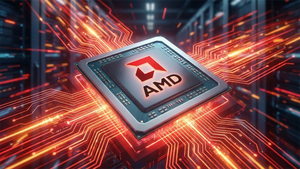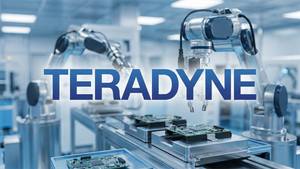Financial News
Malaysia and IIT Madras Forge Alliance to Propel Semiconductor Innovation and Global Resilience

Kuala Lumpur, Malaysia & Chennai, India – October 22, 2025 – In a landmark move set to reshape the global semiconductor landscape, the Advanced Semiconductor Academy of Malaysia (ASEM) and the Indian Institute of Technology Madras (IIT Madras Global) today announced a strategic alliance. Formalized through a Memorandum of Understanding (MoU) signed on this very day, the partnership aims to significantly strengthen Malaysia's position in the global semiconductor value chain, cultivate high-skilled talent, and reduce the region's reliance on established semiconductor hubs in the United States, China, and Taiwan. Simultaneously, the collaboration seeks to unlock a strategic foothold in India's burgeoning US$100 billion semiconductor market, fostering new investments and co-development opportunities that will enhance Malaysia's competitiveness as a design-led economy.
This alliance arrives at a critical juncture for the global technology industry, grappling with persistent supply chain vulnerabilities and an insatiable demand for advanced chips, particularly those powering the artificial intelligence revolution. By combining Malaysia's robust manufacturing and packaging capabilities with India's deep expertise in chip design and R&D, the partnership signals a concerted effort by both nations to build a more resilient, diversified, and innovative semiconductor ecosystem, poised to capitalize on the next wave of technological advancement.
Cultivating Next-Gen Talent with a RISC-V Focus
The technical core of this alliance lies in its ambitious talent development programs, designed to equip Malaysian engineers with cutting-edge skills for the future of computing. In 2026, ASEM and IIT Madras Global will launch a Graduate Skilling Program in Computer Architecture and RISC-V Design. This program is strategically focused on the RISC-V instruction set architecture (ISA), an open-source standard rapidly gaining traction as a fundamental technology for AI, edge computing, and data centers. IIT Madras brings formidable expertise in this domain, exemplified by its "SHAKTI" microprocessor project, which successfully developed and booted an aerospace-quality RISC-V based chip, demonstrating a profound capability in practical, advanced RISC-V development. The program aims to impart critical design and verification skills, positioning Malaysia to move beyond its traditional strengths in manufacturing towards higher-value intellectual property creation.
Complementing this, a Semester Exchange and Joint Certificate Program will be established in collaboration with the University of Selangor (UNISEL). This initiative involves the co-development of an enhanced Electrical and Electronic Engineering (EEE) curriculum, allowing graduates to receive both a local degree from UNISEL and a joint certificate from IIT Madras. This dual certification is expected to significantly boost the global employability and academic recognition of Malaysian engineers. ASEM, established in 2024 with strong government backing, is committed to closing the semiconductor talent gap, with a broader goal of training 20,000 engineers over the next decade. These programs are projected to train 350 participants in 2026, forming a crucial foundation for deeper bilateral collaboration in semiconductor education and R&D.
This academic-industry partnership model represents a significant departure from previous approaches in Malaysian semiconductor talent development. Unlike potentially more localized or vocational training, this alliance involves direct, deep collaboration with a globally renowned institution like IIT Madras, known for its technical and research prowess in advanced computing and semiconductors. The explicit prioritization of advanced IC design, particularly with an emphasis on open-source RISC-V architectures, signals a strategic shift towards moving up the value chain into core R&D activities. Furthermore, the commitment to curriculum co-development and global recognition, coupled with robust infrastructure like ASEM’s IC Design Parks equipped with GPU resources and Electronic Design Automation (EDA) software tools, provides a comprehensive ecosystem for advanced talent development. Initial reactions from within the collaborating entities and Malaysian stakeholders are overwhelmingly positive, viewing the strategic choice of RISC-V as forward-thinking and relevant to future technological trends.
Reshaping the Competitive Landscape for Tech Giants
The ASEM-IIT Madras alliance is poised to have significant competitive implications for major AI labs, tech giants, and startups globally, particularly as it seeks to diversify the semiconductor supply chain.
For Malaysian companies, this alliance provides a springboard for growth. SilTerra Malaysia Sdn Bhd (MYX: SITERRA), a global pure-play 200mm semiconductor foundry, is already partnering with IIT Madras for R&D in programmable silicon photonic processor chips for quantum computing and energy-efficient interconnect solutions for AI/ML. The new Malaysia IC Design Park 2 in Cyberjaya, collaborating with global players like Synopsys (NASDAQ: SNPS), Keysight (NYSE: KEYS), and Ansys (NASDAQ: ANSS), will further enhance Malaysia's end-to-end design capabilities. Malaysian SMEs and the robust Outsourced Assembly and Testing (OSAT) sector stand to benefit from increased demand and technological advancements.
Indian companies are also set for significant gains. Startups like InCore Semiconductors, originating from IIT Madras, are developing RISC-V processors and AI IP. 3rdiTech, co-founded by IIT Madras alumni, focuses on commercializing image sensors. Major players like Tata Advanced Systems (NSE: TATAMOTORS) are involved in chip packaging for indigenous Indian projects, with the Tata group also establishing a fabrication unit with Powerchip Semiconductor Manufacturing Corporation (PSMC) (TWSE: 2337) in Gujarat. ISRO (Indian Space Research Organisation), in collaboration with IIT Madras, has developed the "IRIS" SHAKTI-based chip for self-reliance in aerospace. The alliance provides IIT Madras Research Park incubated startups with a platform to scale and develop advanced semiconductor learnings, while global companies like Qualcomm India (NASDAQ: QCOM) and Samsung (KRX: 005930) with existing ties to IIT Madras could deepen their engagements.
Globally, established semiconductor giants such as Intel (NASDAQ: INTC), Infineon (FSE: IFX), and Broadcom (NASDAQ: AVGO), with existing manufacturing bases in Malaysia, stand to benefit from the enhanced talent pool and ecosystem development, potentially leading to increased investments and expanded operations.
The alliance's primary objective to reduce over-reliance on the semiconductor industries of the US, China, and Taiwan directly impacts the global supply chain, pushing for a more geographically distributed and resilient network. The emphasis on RISC-V architecture is a crucial competitive factor, fostering an alternative to proprietary architectures like x86 and ARM. AI labs and tech companies adopting or developing solutions based on RISC-V could gain strategic advantages in performance, cost, and customization. This diversification of the supply chain, combined with an expanded, highly skilled workforce, could prompt major tech companies to re-evaluate their sourcing and R&D strategies, potentially leading to lower R&D and manufacturing costs in the region. The focus on indigenous capabilities in strategic sectors, particularly in India, could also reduce demand for foreign components in critical applications. This could disrupt existing product and service offerings by accelerating the adoption of open-source hardware, leading to new, cost-effective, and specialized semiconductor solutions.
A Wider Geopolitical and AI Landscape Shift
This ASEM-IIT Madras alliance is more than a bilateral agreement; it's a significant development within the broader global AI and semiconductor landscape, directly addressing critical trends such as supply chain diversification and geopolitical shifts. The semiconductor industry's vulnerabilities, exposed by geopolitical tensions and concentrated manufacturing, have spurred nations worldwide to invest in domestic capabilities and diversify their supply chains. This alliance explicitly aims to reduce Malaysia's over-reliance on established players, contributing to global supply chain resilience. India, with its ambitious $10 billion incentive program, is emerging as a pivotal player in this global diversification effort.
Semiconductors are now recognized as strategic commodities, fundamental to national security and economic strategy. The partnership allows Malaysia and India to navigate these geopolitical dynamics, fostering technological sovereignty and economic security through stronger bilateral cooperation. This aligns with broader international efforts, such as the EU-India Trade and Technology Council (TTC), which aims to deepen digital cooperation in semiconductors, AI, and 6G. Furthermore, the alliance directly addresses the surging demand for AI-specific chips, driven by generative AI and large language models (LLMs). The focus on RISC-V, a global standard powering AI, edge computing, and data centers, positions the alliance to meet this demand and ensure competitiveness in next-generation chip design.
The wider impacts on the tech industry and society are profound. It will accelerate innovation and R&D, particularly in energy-efficient architectures crucial for AI at the edge. The talent development initiatives will address the critical global shortage of skilled semiconductor workers, enhancing global employability. Economically, it promises to stimulate growth and create high-skilled jobs in both nations, while contributing to a human-centric and ethical digital transformation across various sectors. There's also potential for collaboration on sustainable semiconductor technologies, contributing to a greener global supply chain.
However, challenges persist. Geopolitical tensions could still impact technology transfer and market stability. The capital-intensive nature of the semiconductor industry demands sustained funding and investment. Retaining trained talent amidst global competition, overcoming technological hurdles, and ensuring strong intellectual property protection are also crucial. This initiative represents an evolution rather than a singular breakthrough like the invention of the transistor. While previous milestones focused on fundamental invention, this era emphasizes geographic diversification, specialized AI hardware (like RISC-V), and collaborative ecosystem building, reflecting a global shift towards distributed, resilient, and AI-optimized semiconductor development.
The Road Ahead: Innovation and Resilience
The ASEM-IIT Madras semiconductor alliance sets a clear trajectory for significant near-term and long-term developments, promising to transform Malaysia's and India's roles in the global tech arena.
In the near-term (2026), the launch of the graduate skilling program in computer architecture and RISC-V Design, alongside the joint certificate program with UNISEL, will be critical milestones. These programs are expected to train 350 participants, immediately addressing the talent gap and establishing a foundation for advanced R&D. IIT Madras's proven track record in national skilling initiatives, such as its partnership with the Union Education Ministry's SWAYAM Plus, suggests a robust and practical approach to curriculum delivery and placement assistance. The Tamil Nadu government's "Schools of Semiconductor" initiative, in collaboration with IIT Madras, further underscores the commitment to training a large pool of professionals.
Looking further ahead, IIT Madras Global's expressed interest in establishing an IIT Global Research Hub in Malaysia is a pivotal long-term development. Envisioned as a soft-landing platform for deep-tech startups and collaborative R&D, this hub could position Malaysia as a gateway for Indian, Taiwanese, and Chinese semiconductor innovation within ASEAN. This aligns with IIT Madras's broader global expansion, including the IITM Global Dubai Centre specializing in AI, data science, and robotics. This network of research hubs will foster joint innovation and local problem-solving, extending beyond traditional academic teaching. Market expansion is another key objective, aiming to reduce Malaysia's reliance on traditional semiconductor powerhouses while securing a strategic foothold in India's rapidly growing market, projected to reach $500 billion in its electronics sector by 2030.
The potential applications and use cases for the talent and technologies developed are vast. The focus on RISC-V will directly contribute to advanced AI and edge computing chips, high-performance data centers, and power electronics for electric vehicles (EVs). IIT Madras's prior work with ISRO on aerospace-quality SHAKTI-based chips demonstrates the potential for applications in space technology and defense. Furthermore, the alliance will fuel innovation in the Internet of Things (IoT), 5G, and advanced manufacturing, while the research hub will incubate deep-tech startups across various fields.
However, challenges remain. Sustaining the momentum requires continuous efforts to bridge the talent gap, secure consistent funding and investment in a capital-intensive industry, and overcome infrastructural shortcomings. The alliance must also continuously innovate to remain competitive against rapid technological advancements and intense global competition. Ensuring strong industry-academia alignment will be crucial for producing work-ready graduates. Experts predict continued robust growth for the semiconductor industry, driven by AI, 5G, and IoT, with revenues potentially reaching $1 trillion by 2030. This alliance is seen as part of a broader trend of global collaboration and infrastructure investment, contributing to a more diversified and resilient global semiconductor supply chain, with India and Southeast Asia playing increasingly prominent roles in design, research, and specialized manufacturing.
A New Chapter in AI and Semiconductor History
The alliance between the Advanced Semiconductor Academy of Malaysia and the Indian Institute of Technology Madras Global marks a significant and timely development in the ever-evolving landscape of artificial intelligence and semiconductors. This collaboration is a powerful testament to the growing imperative for regional partnerships to foster technological sovereignty, build resilient supply chains, and cultivate the specialized talent required to drive the next generation of AI-powered innovation.
The key takeaways from this alliance are clear: a strategic pivot towards high-value IC design with a focus on open-source RISC-V architecture, a robust commitment to talent development through globally recognized programs, and a concerted effort to diversify market access and reduce geopolitical dependencies. By combining Malaysia's manufacturing prowess with India's deep design expertise, the partnership aims to create a symbiotic ecosystem that benefits both nations and contributes to a more balanced global semiconductor industry.
This development holds significant historical weight. While not a singular scientific breakthrough, it represents a crucial strategic milestone in the age of distributed innovation and supply chain resilience. It signals a shift from concentrated manufacturing to a more diversified global network, where collaboration between emerging tech hubs like Malaysia and India will play an increasingly vital role. The emphasis on RISC-V for AI and edge computing is particularly forward-looking, aligning with the architectural demands of future AI workloads.
In the coming weeks and months, the tech world will be watching closely for the initial rollout of the graduate skilling programs in 2026, the progress towards establishing the IIT Global Research Hub in Malaysia, and the tangible impacts on foreign direct investment and market access. The success of this alliance will not only bolster the semiconductor industries of Malaysia and India but also serve as a blueprint for future international collaborations seeking to navigate the complexities and opportunities of the AI era.
This content is intended for informational purposes only and represents analysis of current AI developments.
TokenRing AI delivers enterprise-grade solutions for multi-agent AI workflow orchestration, AI-powered development tools, and seamless remote collaboration platforms. For more information, visit https://www.tokenring.ai/.
More News
View More




Recent Quotes
View MoreQuotes delayed at least 20 minutes.
By accessing this page, you agree to the Privacy Policy and Terms Of Service.



